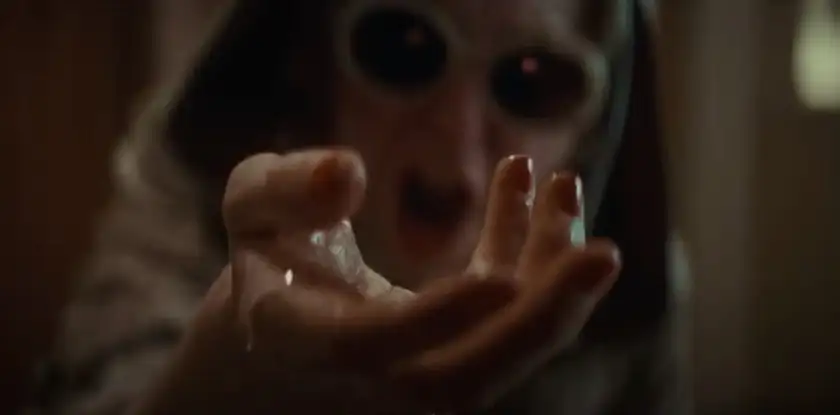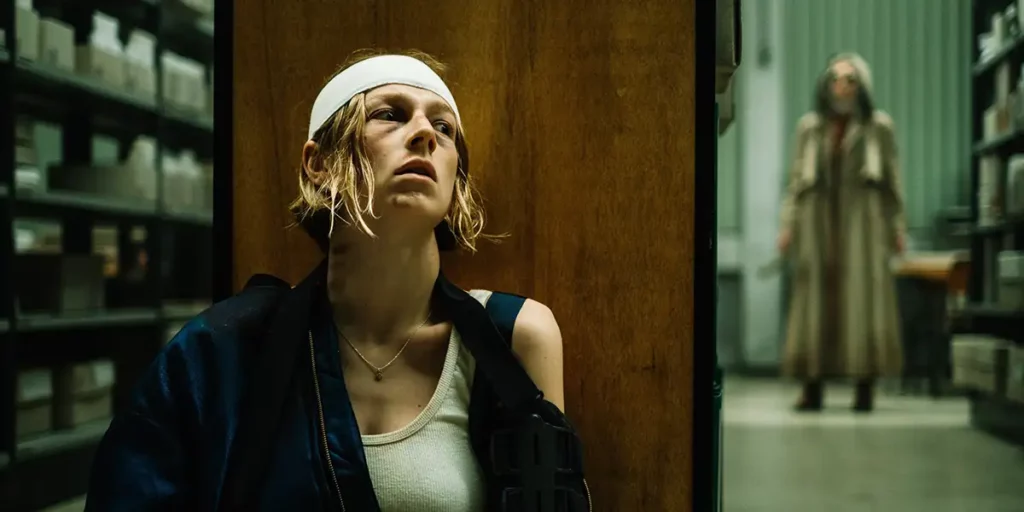German film Cuckoo, starring Hunter Schafer, nests some fascinating ideas for reinvention of the Get Out-style psychological horror.
In Cuckoo, director Tilman Singer manages to bring out yet another compelling performance out of rising star Hunter Schafer while juggling the challenges of his new German horror film’s complicated narrative.
Gretchen (Schafer) is forced to move with her dad’s family to a lavish vacation home in the German Alps, invited by Mr. König (Dan Stevens). When Gretchen starts a summer job at Mr. König’s secluded resort to escape tensions at home, she becomes threatened by a freakish woman with something inhuman about her. Uncovering the woman’s sinister origin entraps Gretchen in a nightmare reality that feels like an inescapable loop.
Cuckoo is a difficult film to make up your mind about, since it has just as many strong moments as it has weak ones. It promises many genre-bending innovations, but it is also crowded with confusingly incorporated horror tropes.
A particular scene in the film describes to the audience the significance of the titular cuckoo bird to the narrative: cuckoos are common, but their behaviors are not, much like our main characters, who feel like common people but with uncommon subtleties. The unsettling nature of Cuckoo roots itself exactly in everyone’s slightly off behaviors: the weird ticks, the abnormal pacing of movements and gestures. Hunter Schafer’s quiet, physically peculiar performance is one of the strongest highlights.
Meanwhile, the actual components of the visual language that identify Cuckoo as a horror film did not always hit as hard as expected, even with a well-executed score and a few decent jumpscares. The disturbing, the suspenseful, and the actual horror elements aren’t as memorable as the ideas behind them. The effectively engaging setup of the first act goes on to spread its tension-filled moments too thin, until they don’t feel as tense as they should.

It’s a real head-scratcher to figure out how exactly the movie got so strangely messy and how it manages to keep recovering from its dips in tension only to pick it back up and then do it all over again in a loop. Pun intended, but it will only make sense after watching.
Cuckoo somehow reminded me of Jordan Peele’s Get Out, despite not being related to it too much on a thematic or visual level. The two films lie in similar subgenres of psychological horror, relying on similar untraditional means of conveying uneasiness, but Singer’s film is far less focused.
Horror films are at their most effective when they are all about showing, not telling, evoking fear instead of explaining it. Tilman Singer’s script could’ve used less exposition in its later stages, when we begin to understand more of the strange concept that the movie hides behind its eerie facade. It feels like the writing tries to impress by breaking down in dialogue every detail of the elaborate secrets that are actually going on, but rarely exploring them on screen to their full potential.
I left feeling appreciative of the acting work and standout directing moments. I felt Singer’s unique voice as a director, but with a script that needed more of that voice. It feels as if Cuckoo was not confident about the quality of its own ideas: it fears really going all the way and overcompensates by having the characters talk about them instead.
Cuckoo premiered at the 2024 Berlin Film Festival and will be released in US theaters on August 9, 2024 and will be screened at the 2024 Fantasia Film Festival.

